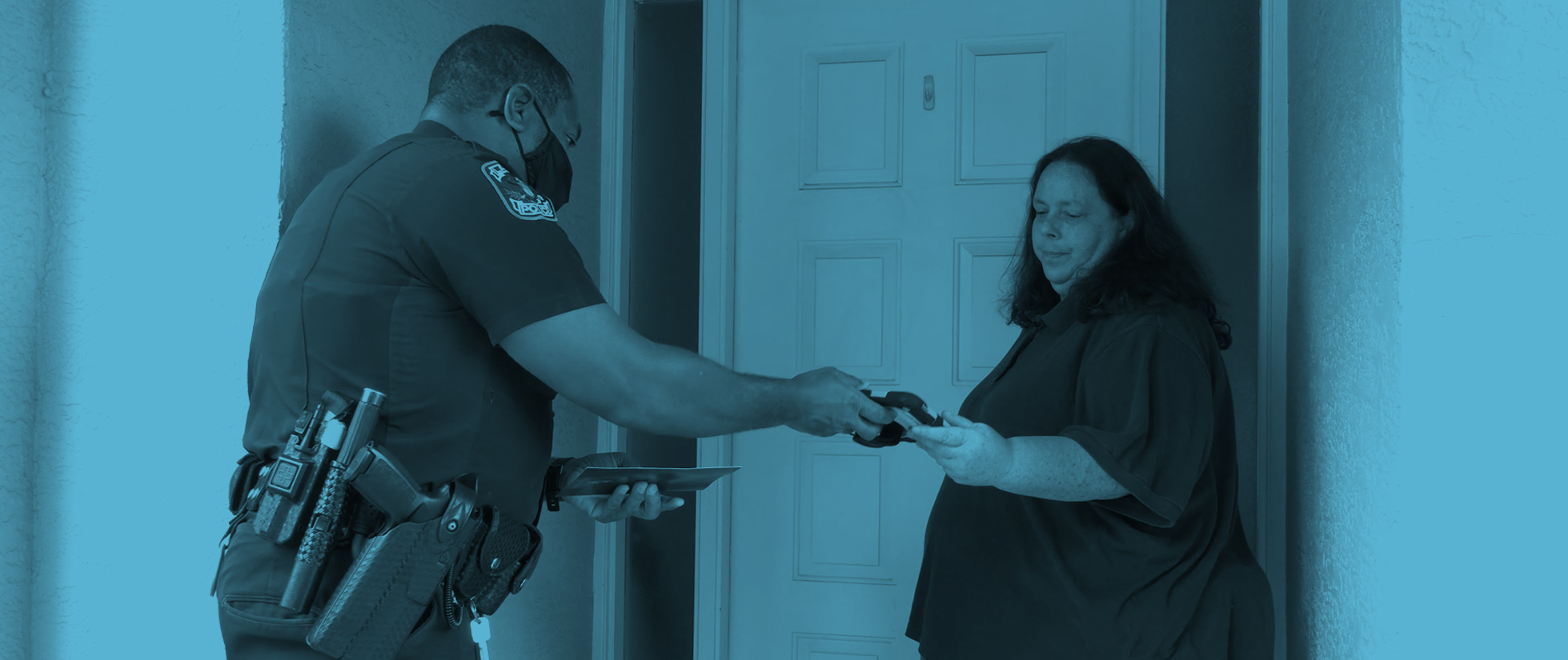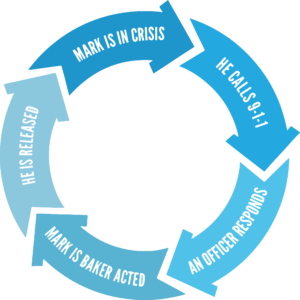What is TRACE?
TRACETM (Telehealth Remote Access to Crisis Evaluation) is a partnership between local Police Departments and Directions for Living that has been established to provide a behavioral health expert to respond to Pinellas County citizens struggling with increased stressors, mental / emotional challenges, and family or personal matters. In crisis situations involving law enforcement, a behavioral health expert can, in many instances, diffuse the situation through listening to the person’s concerns, determining needs, and providing practical strategies to restore calm.
How does it work?
TRACE uses technology to provide officers responding to emergency calls with immediate access to a DFL Behavioral Health professional while in the field. TRACE offers real-time mental health expertise, assessment, and guidance to officers and individuals in crisis via a tablet using the Zoom Tele-behavioral Health platform. This technology allows the individual in crisis to receive a face-to-face mental health assessment with a trained counselor. TRACE plays to the strengths of the unique role only law enforcement can play, as they use their training to respond on-demand and solve problems on the spot, while blending this with the expertise of the mental health professionals.

What is the goal of TRACE?
The goal of the TRACE program is to decrease unnecessary Baker Acts and arrests, help with de-escalation, provide direct linkage to follow up mental health services and supports, and prevent unnecessary transport to crisis stabilization units, hospitals, or jail. Primarily, TRACE interrupts the cycle of mental health crisis for someone without established supports/resources.

Asking our police officers to respond to criminal activity AND play the role of social worker – which they have not been adequately trained to do – is not fair to those officers or to the citizens in crisis who may call 911 in need of mental health supports. Ideally every officer would be paired with a mental health counselor to physically respond to these types of calls, but there simply isn’t the funding capacity to do so in every case. TRACE allows these counselors to be available to these citizens immediately during a crisis, just a Zoom call away.
TRACE Research Study
We are proud to share that the TRACE program was recently selected to be the subject of a study by The University of South Florida’s Department of Child & Family Studies to assess the impact of the model. Specifically, this one-year study will assess the skill and level of confidence officers from the TRACE program have gained as a result of their partnership with DFL’s clinical staff, how the TRACE model functions, in what ways officers learn from clinical staff, how staff perceive effectiveness of the model, and to what extent there is an adequate array of behavioral health services available for referral and treatment. Finally, the study seeks to understand how well the behavioral health system supports pathways to treatment that avoid or decrease the frequency of individuals’ interactions with the criminal justice system when law enforcement engagement is not warranted. DFL is grateful to be able to have the TRACE model assessed in this way, and we hope the results of the study will contribute to emerging literature on the impact of police-mental health collaborative models and may be used by other scholars and practitioners to assess the impact of other co-response models.




